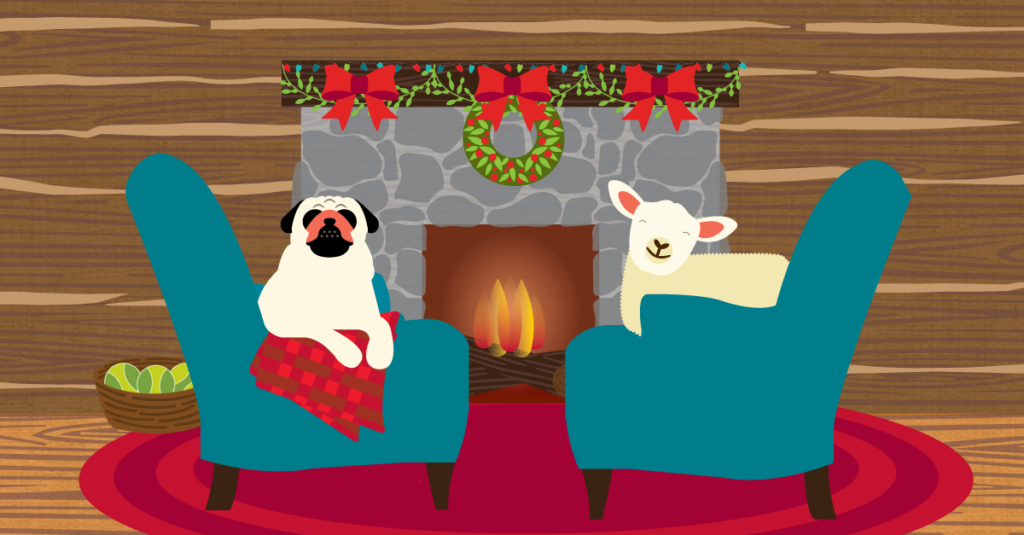Battling the Blues: Connect
By Kari Dequine Harden, Steamboat Pilot & Today

Editor’s note: This is part four in a series of four articles exploring the causes of — and ways to combat — winter blues. The focus of the series is on mental health and strategies for improving your state of mind through physical activity, spirituality, diet and community and connections.
STEAMBOAT SPRINGS — Connections to other human beings — and animals — can play a huge role in mental health and well-being.
“People who are more socially connected to family, friends or their community are happier, physically healthier and live longer, with fewer mental health problems than people who are less well connected,” according to the UK-based Mental Health Foundation.
Research in recent years has shown an increase in loneliness and isolation in the U.S.
“Two in five Americans report that they sometimes or always feel their social relationships are not meaningful, and one in five say they feel lonely or socially isolated,” according to the U.S. Health Resources & Services Administration. “Loneliness and social isolation can be as damaging to health as smoking 15 cigarettes a day,” according to one study cited by the administration. “And the problem is particularly acute among seniors, especially during holidays.”
The importance of healthy relationships and a sense of belonging within a community cannot be overstated. Countless studies show that strong relationships improve health, while loneliness hurts health.
Finding and maintaining those relationships can be easier said than done, especially for introverts. But it is more about quality and meaningful relationships than it is about numbers.
And chances are, whether it is a significant other, a sibling or a long-distance friend, common interests and common values can be found somewhere.
Pam Ruhle, president and one of the founders of “Women’s United,” is an avid volunteer. The group is an affiliate of Routt County United Way and is described on their website as “a dynamic group of philanthropic-oriented women dedicated to giving. … When we connect, the power of the individual suddenly becomes an overwhelming and unmistakable force.”
On volunteering, whether it is at a museum, an animal shelter or a food bank, Ruhle lists a number of benefits.
For one, you can meet new people, she said. For Ruhle and her husband, many of their close friends are a result of people they met volunteering. Not only are they friends, but also a network of support, she explained.
And, “It gets you out of your space. It gets you thinking about someone else,” Ruhle added.
The Steamboat Springs community, noted Ruhle, has “a plethora of nonprofits and something for almost anyone’s passion.”
Even one hour a week can change your life, she said.
Human and animal relationships are not to be discounted. Pets are increasingly shown to provide both mental and physical benefits to their owners.
“Not only are people happier in the presence of animals, they’re also healthier,” according to the Anxiety and Depression Association of Americans. “In a survey of pet owners, 74% of pet owners reported mental health improvements from pet ownership, and 75% of pet owners reported a friend’s or family member’s mental health has improved from pet ownership.”
Again, whether a dog or a horse or a spouse or a coworker, the emphasis is on quality. And studies show unhealthy relationships are not necessarily better than no relationships.
“It’s not just the number of friends you have, and it’s not whether or not you’re in a committed relationship, but it’s the quality of your close relationships that matters,” according to the Mental Health Foundation. “Living in conflict or within a toxic relationship is more damaging than being alone. It is the quality of our relationships that matters. In seeking to combat loneliness and isolation, we need to be aware that poor-quality relationships can be toxic and worse for our mental health than being alone. Research shows that people in unhappy or negative relationships have significantly worse outcomes than those who are isolated or have no relationships.”
While holidays can bring people together, they can also be a source of stress. In a recent news release offering “strategies to manage stress during the holidays,” Mind Springs Health noted that for many, the holidays come with feelings of being overwhelmed and overburdened.
Some family members bring joyous reunions, but others, especially in an era of sharp political divisiveness, can add stress to holiday gatherings. As can unrealistic expectations of everything being perfect during holiday celebrations.
Mind Springs reminds people to take a break from the chaos when needed and not neglect self-care.
In the Blue Zone research on the nine common traits people share in the communities with the most people who live to 100 or beyond, human connections relate to four of the nine.
Those include finding a sense of purpose, finding the “right tribe,” finding a sense of belonging through spirituality and putting loved ones as the highest priority.
For Ruhle, whether it is her church, her family, a club or volunteering, she thrives in an environment of daily human connections.
“Find that thing that has meaning to you,” she urges.
Ruhle loves giving back to the community, but she is also fully cognoscente of how much she gets in return.